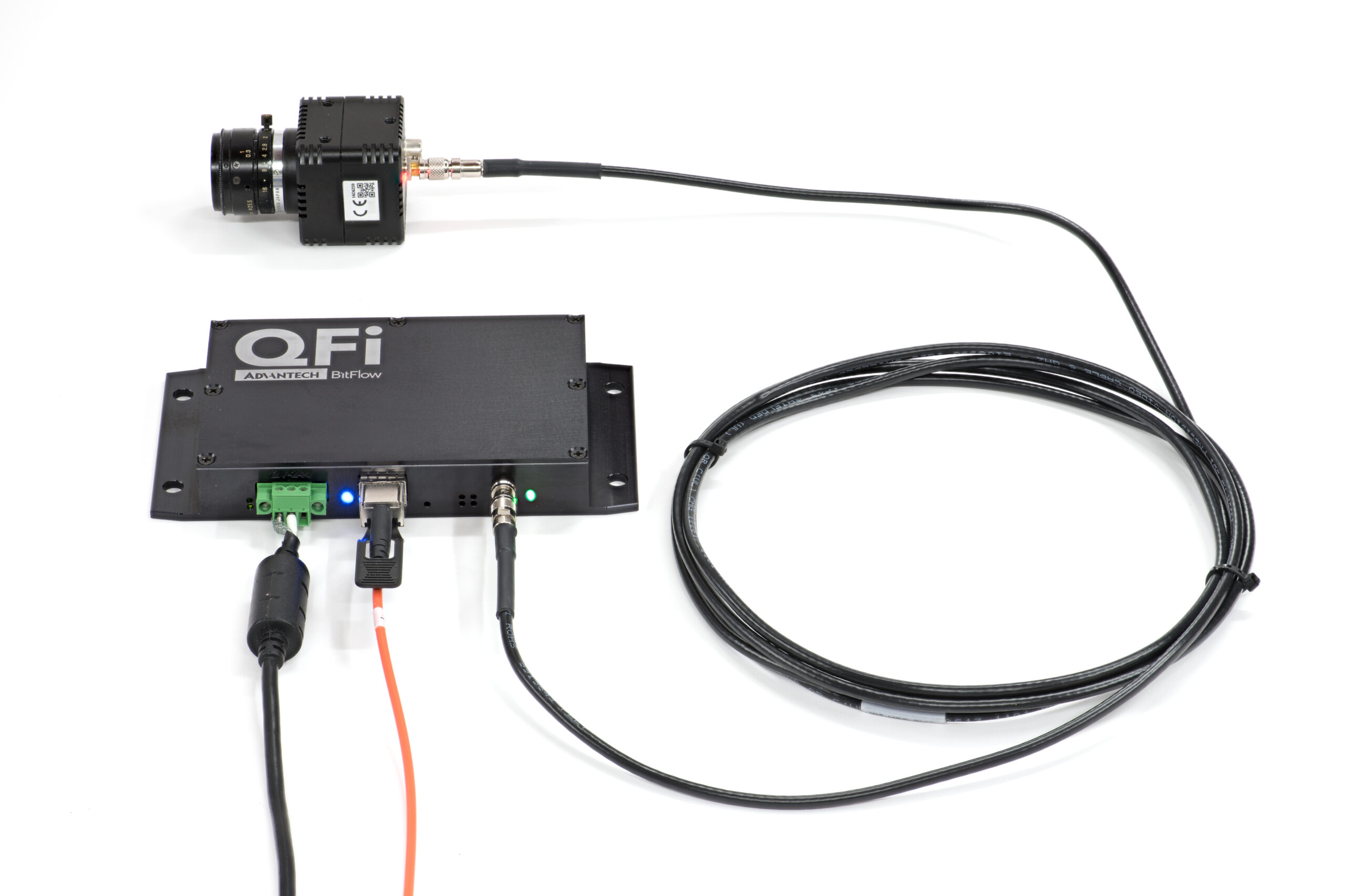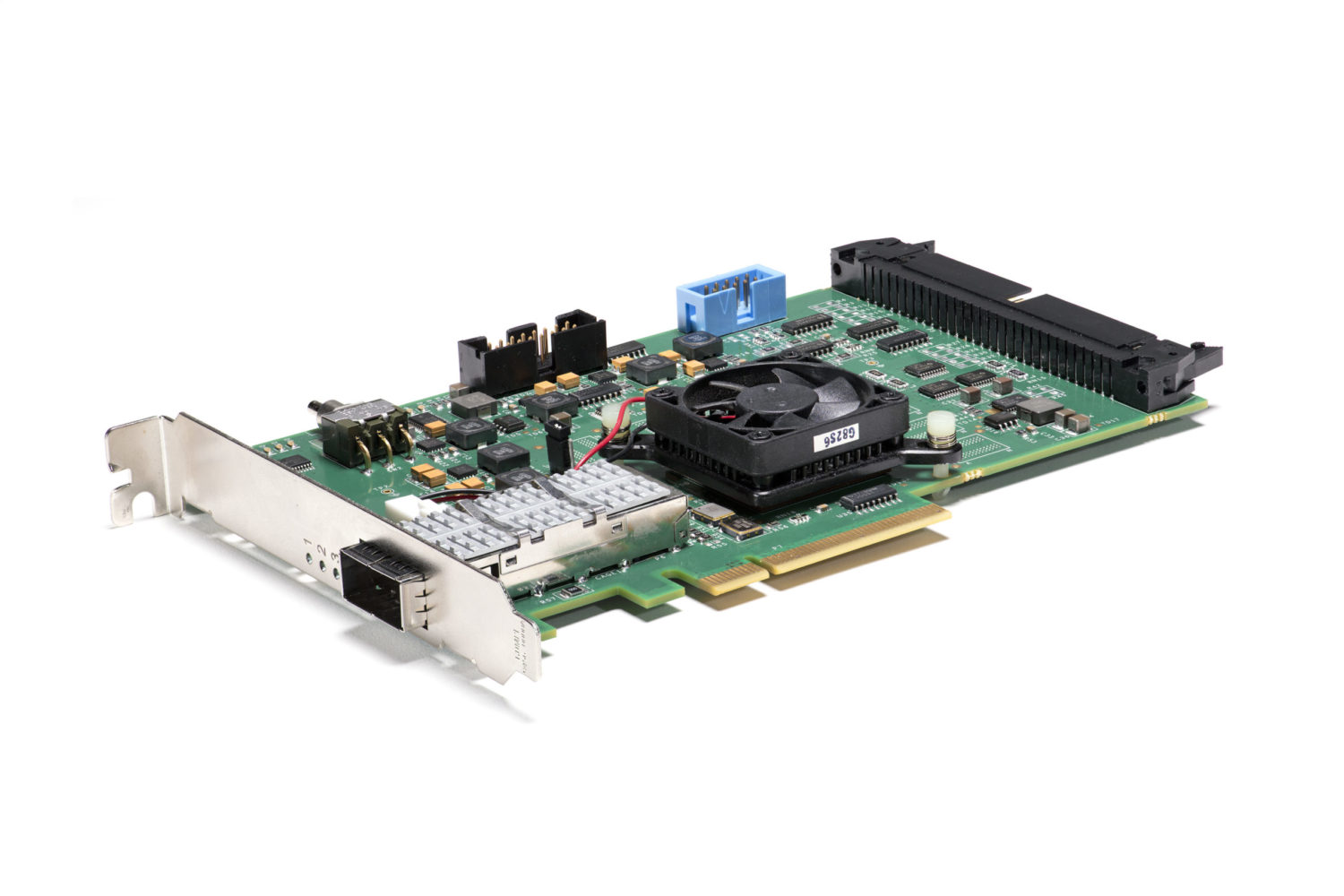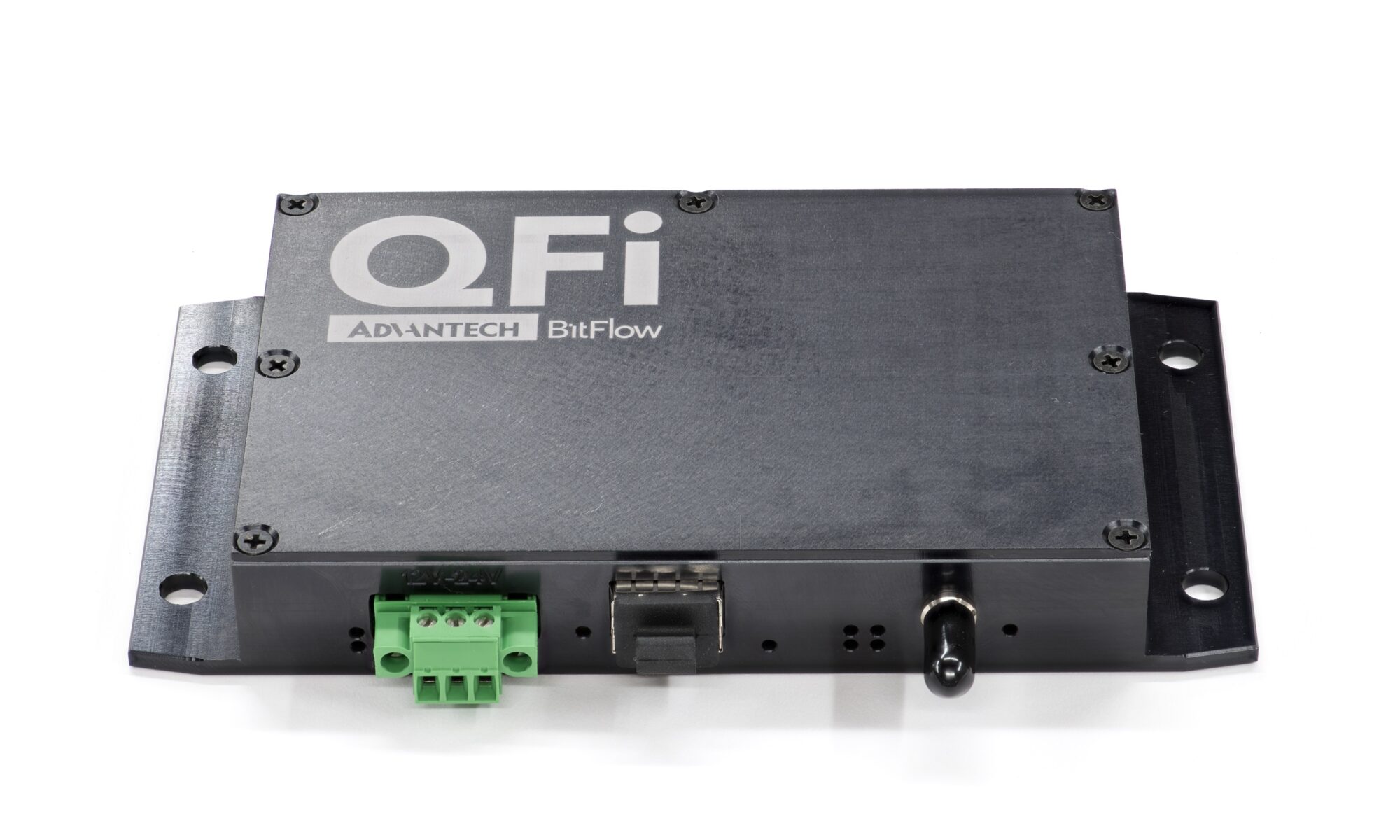The QFi was created to solve the problem of needing a compact CoaXPress (CXP) camera to be located a long way from the host PC. The traditional solution was to convert the camera’s CXP output to fiber using a dedicated set of converter boxes; with a long run of fiber cable in between. At the PC end, the signal is converted back to copper and plugged into a frame grabber. While this is a viable configuration, it is quite cost prohibitive. Another solution is to convince the camera maker to redesign the camera with a fiber interface. Here the problem is that these small cameras would get much larger and require higher power in order to support a fiber output. Further, the ROI for the camera maker would probably be small as these are cost sensitive applications.
The QFi Solution
The QFi solves this problem by taking a minimal parts approach. It connects directly to the
camera via normal CXP (on coax). It can also power the camera.
The QFi uses CoaXPress over Fiber (CoF) on the frame grabber side. CoF can run many
kilometers on low cost fiber cables. The fiber then plugs directly in to the BitFlow Claxon
fiber frame grabber. The output of up to four QFi boxes can be connected to a single quad-link
frame grabber.
How it connects

Hardware Specifications
- CoaXPress copper (device) to fiber (host) converter
- Device: single-link CoaXPress camera
- Host: Claxon fiber frame grabber
- CoaXPress 1.1/2.0 compliant
- Uplink channel fully supported
- Camera speeds CXP-1 (1.25 Gb/S) to CXP-12 (12.5 Gb/S)
- Supports QFi to camera distances up to 40 meters at CXP-
12, even longer for lower speeds - Fiber connection always runs at 10 Gb/S (which supports
CXP-12) - Supports all SFP+ compatible cable assemblies
- Supports fiber lengths well over 100km
- Up to four QFi modules can be connected to one frame
grabber - Multiple QFi modules can be used for multi-link cameras
- Off-the-shelf fiber cables exist that combine multiple SFP+
connections to one QFSP+ connection - Firmware is field upgradable
- QFi does not need programming
- Automatically switches CoaXPress speeds to match camera
- Provides up to 13 Watts of power to camera
- Side channel available for observing QFi state (temperature,
link speed, etc) - Ruggedized industrial case
- RoHS compliant
- REACH compliant
Software specifications
- Works with our Claxon FXP4, no software needed
Ordering Information
BitFlow Part Number: QFI-C12-C2F1
Advantech Part Number: TBD
Documentation
Also consider
Claxon FXP4 |

